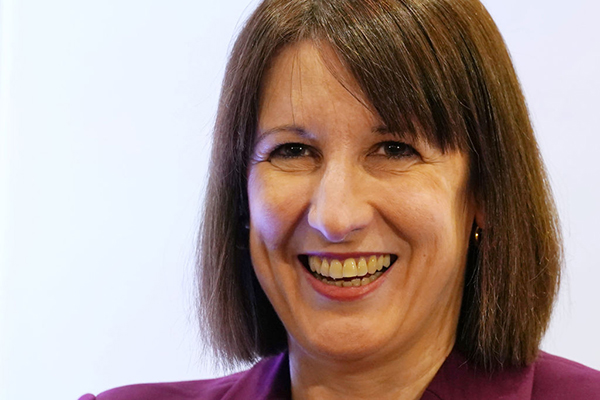The big personal finance events of 2024
Rachel Lacey rounds up the headline-grabbing money stories from this year and looks ahead to 2025.
24th December 2024 11:30

Whatever your own situation, 2024 was a big year for personal finance. Inflation came back down to earth, and interest rates started to edge downwards, but the biggest change, of course, came from the general election and a new government that hasn’t hung around in making significant changes to fiscal policy.
- Invest with ii: SIPP Account | Stocks & Shares ISA | See all Investment Accounts
Let’s take a closer look over the past 12 months quarter by quarter.
Quarter 1: January to March
At the start of 2024, inflation was steadily falling, with the consumer prices index (CPI) at 4% in January and dropping to 3.2% by March. Interest rates, meanwhile, remained stubbornly stuck at 5.25% - the highest they had been since April 2008.
The cost-of-living crisis was theoretically over, but it didn’t really feel that way with households adjusting to higher bills and dealing with the “new normal”.
In March, Chancellor Jeremy Hunt delivered the Conservatives’ final Budget before the general election, and it was unsurprisingly a clear attempt to curry favour with the electorate.
- Watch our video: tax & saving events to watch for in 2025
- Watch our video: three ways I might spend my windfall
The biggest “crowd pleaser” was a cut to workers’ national insurance contributions (NIC), worth 2p in every pound.
He also tried to woo investors with the launch of the “British ISA” – a proposal to add a further £5,000 to the £20,000 tax-free savings allowance for those willing to invest in the domestic economy.
And, in a bid to appease working families, Hunt also announced a shake-up of the higher income child benefit tax charge by upping the minimum earnings threshold from £50,000 to £60,000 and slowing the rate at which the benefit is clawed back.
Quarter 2: April to June
It was a busy end to the 2023-24 tax year as investors raced to take advantage of the £6,000 allowance for capital gains tax (CGT) before it halved to £3,000 on 6 April.
The start of the new tax year also marked the formal abolition of the pension lifetime allowance (LTA), which limited the amount people could have in a pension and get tax relief, and ushered in a handful of confusing new allowances (the lump sum allowance and lump sum and death benefit allowance) that limit the benefits that can be taken from pensions tax free.
Then there were a host of changes to individual saving account (ISA) rules – including a new ability to pay into multiple ISAs of the same type in one tax year and the introduction of partial ISA transfers.
- Sign up to our free newsletter for investment ideas, latest news and award-winning analysis
- Budget 2024: AIM shares no longer IHT exempt, and ISA allowance frozen
Inflation was continuing to fall and, in May, finally hit the government’s target rate of 2%, but the interest rate was still holding fast at 5.25%.
The big announcement that we all knew was in the pipeline still came as a surprise. On 22 May after a day of fierce speculation and buoyed by positive economic data, then-Prime Minister Rishi Sunak announced – in pouring rain and without an umbrella – that the general election would take place on 4 July.

Quarter 3: July to September
After a resounding victory at the polls, Labour did not hang about making its mark. In July, new Chancellor Rachel Reeves announced a new pensions bill in the King’s Speech paving the way for increased pensions consolidation and the introduction of a new value for money framework for defined contribution (DC) pensions.
Labour was also quick to confirm its intention to start charging value added tax (VAT) on private school fees from 1 January 2025, despite pleas from worried parents and schools alike. The Office for Budget Responsibility (OBR) forecast that the move would force 35,000 children out of the independent sector and into state schools at a cost of £300 million to the Treasury.
The proposed cap on social care costs was also scrapped.
The biggest shock though, came though at the end of July when Rachel Reeves announced the government would be scrapping the winter fuel payment – worth up to £300 for some households – for all but the poorest pensioners.
The chancellor warned that there would be more difficult choices to make in the upcoming Autumn Budget to tackle the £22 billion “black hole” in the nation’s finances.
By August, the Monetary Policy Committee (MPC) finally felt that inflation was under control and cut interest rates for the first time since the Spring of 2020, bringing the bank rate down to 5% and finally offering a glimmer of hope for home buyers and remortgagers.
Quarter 4: October to December
The Autumn 2024 Budget was the most dreaded, arguably, for a generation. Labour had pledged in its manifesto that it would not increase taxes for working people (so leaving income tax, national insurance and VAT rates untouched) – sparking fear among older people, especially on the back of the winter fuel decision, as well as investors.
CGT, inheritance tax (IHT) as well as the tax treatment of pensions were all in the firing line.
One proposal that Reeves was rumoured to be considering was reducing the cap on tax-free cash from its current level of £268,275 to just £100,000. The rumour – which turned out to be unfounded – spurred numerous worried pension savers to take all the tax-free cash from their pots ahead of the 30 October Budget – many of whom are now regretting their decision and struggling to reinvest their cash.
- How the great wealth transfer could accelerate in 2025
- How IHT on pensions could impact your retirement choices
In the end the biggest tax hike ended up falling on the shoulders of UK businesses – with employer NICs hiked from 13.8% to 15% in April. The so-called wealth taxes weren’t left untouched though.
The rates of CGT on chargeable assets including shares and chattels, were also increased to 18% for people who still fall within the basic-rate tax bracket once their taxable gain is taken into account and 24% for higher and additional rate taxpayers. The increase – which took immediate effect – aligned rates with those previously being charged on residential properties that aren’t the owner’s main home – such as buy-to-lets and holiday homes.
But perhaps the most surprising move was the decision to bring pensions within the reach of IHT from 6 April 2027. The proposal – which is under consultation until January next year – will force many wealthy retirees to review their retirement income plans.
The friendly tax treatment of pensions on death had made them an effective estate planning tool, enabling wealthier individuals to spend other assets first and use their pension to effectively pass their wealth down to younger generations.
What was altogether less surprising, was the decision to drop Jeremy Hunt’s British ISA idea.
Instead, the chancellor confirmed the ISA allowance would remain at its current level for a further five years.
As the eventful year drew to a close, inflation was edging up again – at 2.6% in November, but interest rates were lower, following a cut to 4.75% in the same month. The Bank voted by a majority of six to three to keep rates steady at its final meeting of the year
What about next year?
Over the coming year, inflation is expected to edge up to 3%, but settle back to its 2% target by the end of 2025.
The outlook for interest rates seems less certain though. While there was a general expectation that rates would fall steadily through the year, post Budget, the pace of those falls is now expected to be slower, with increases to employer NICs potentially putting pressure on inflation.
At the start of December, Bank of England chief Andrew Bailey suggested that there would likely be four interest rate cuts during the course of the year.
These articles are provided for information purposes only. Occasionally, an opinion about whether to buy or sell a specific investment may be provided by third parties. The content is not intended to be a personal recommendation to buy or sell any financial instrument or product, or to adopt any investment strategy as it is not provided based on an assessment of your investing knowledge and experience, your financial situation or your investment objectives. The value of your investments, and the income derived from them, may go down as well as up. You may not get back all the money that you invest. The investments referred to in this article may not be suitable for all investors, and if in doubt, an investor should seek advice from a qualified investment adviser.
Full performance can be found on the company or index summary page on the interactive investor website. Simply click on the company's or index name highlighted in the article.
Please remember, investment value can go up or down and you could get back less than you invest. If you’re in any doubt about the suitability of a stocks & shares ISA, you should seek independent financial advice. The tax treatment of this product depends on your individual circumstances and may change in future. If you are uncertain about the tax treatment of the product you should contact HMRC or seek independent tax advice.
Editor's Picks